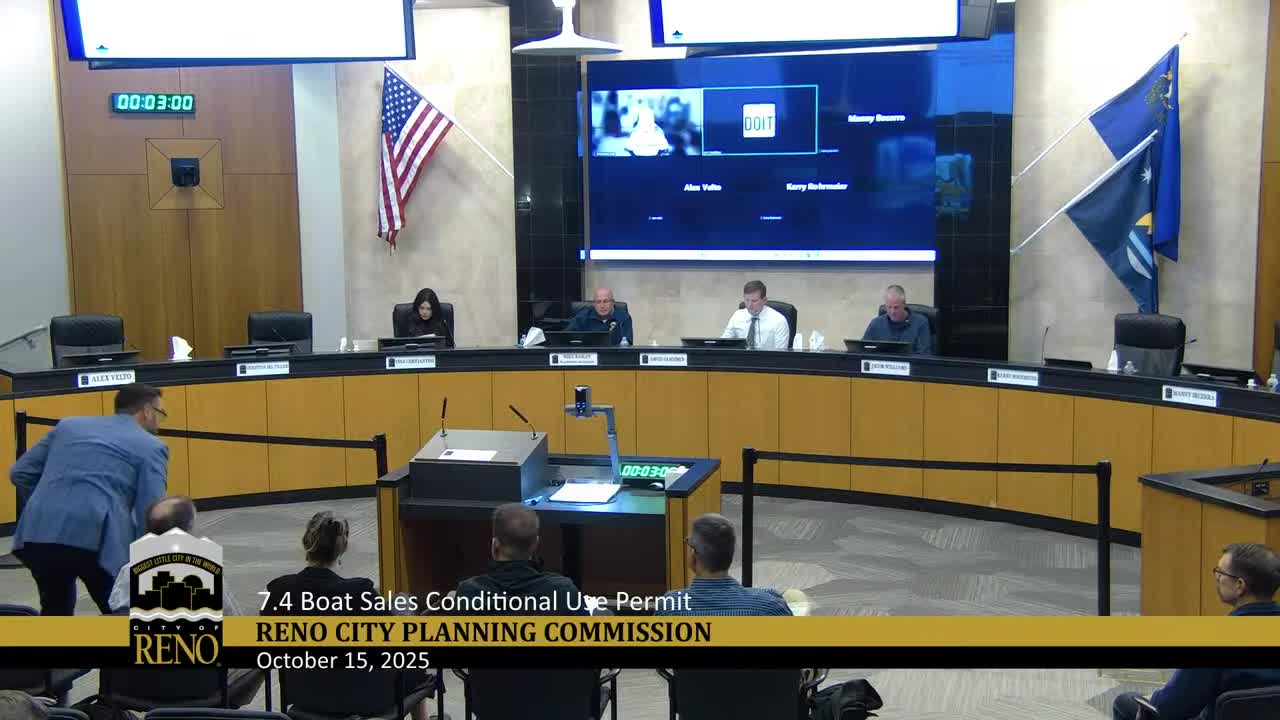Commission recommends city council approve High Sierra Gas propane storage permit
Get AI-powered insights, summaries, and transcripts
Subscribe
Summary
The commission voted unanimously to recommend that the City Council approve a conditional‑use permit for a propane storage and distribution facility (LDC26‑00008). The site contains a 30,000‑gallon tank; staff and the fire marshal said regulatory coordination and inspections mitigate safety concerns.
The Reno City Planning Commission on Wednesday recommended that the City Council approve a conditional‑use permit for a propane storage and distribution facility that exceeds the 10,000‑pound propane threshold in Nevada law.
Associate planner Jeff Foster said the request (case LDC26‑00008) covers a site of about 66.81 acres at the northwest corner of Lear Boulevard and Stead Boulevard and described an existing 30,000‑gallon tank the applicant reinstalled after acquiring equipment used historically on the site. Foster said the tank “holds approximately 24,000 gallons of liquid propane or approximately 100,000 pounds of propane when full at 80%.”
Foster told commissioners the site had previously contained three 30,000‑gallon tanks in the same location for decades and that the existing tank sits about 840 feet from the nearest residential property line and about 350 feet from nearby industrial buildings. Foster said staff coordinated review with state agencies and the Nevada LP Gas Board and that the Nevada State Fire Marshal and the Department of Conservation and Natural Resources raised no unresolved objections. Foster described NFPA 58 — the industry standard for LPG storage and handling — and noted staff included NFPA‑based conditions in the recommended permit.
Carl Windbigler, representing High Sierra Gas, told the commission that a 30,000‑gallon tank is “an industry standard for storage” and that comparable wholesale facilities maintain far larger inventories. Fire Marshal John Beck said the department and hazardous‑materials permitting division had confirmed a current hazardous‑materials permit for the facility. “The fire department’s position is the authority having jurisdiction concurs with all of these…points,” Beck said.
Commissioners pressed about public outreach and what would happen if the business expanded storage; Foster said an amendment to the permit would likely be required for substantially larger storage. Commissioners discussed possible annual reporting or inspection checks; Fire Marshal Beck said the city’s business‑license renewal process triggers fire inspections (staff noted realistic inspection frequency averages roughly once every three years, though high‑risk facilities receive prioritized review). The applicant agreed to provide an annual compliance statement if requested.
Commissioner Manny Becerra moved to recommend city council approval “based upon compliance with the applicable findings.” Commissioner Ganfiantini seconded the motion, which passed unanimously.
Because the use involves hazardous materials, the planning commission’s action is a recommendation; final approval is by the City Council.
